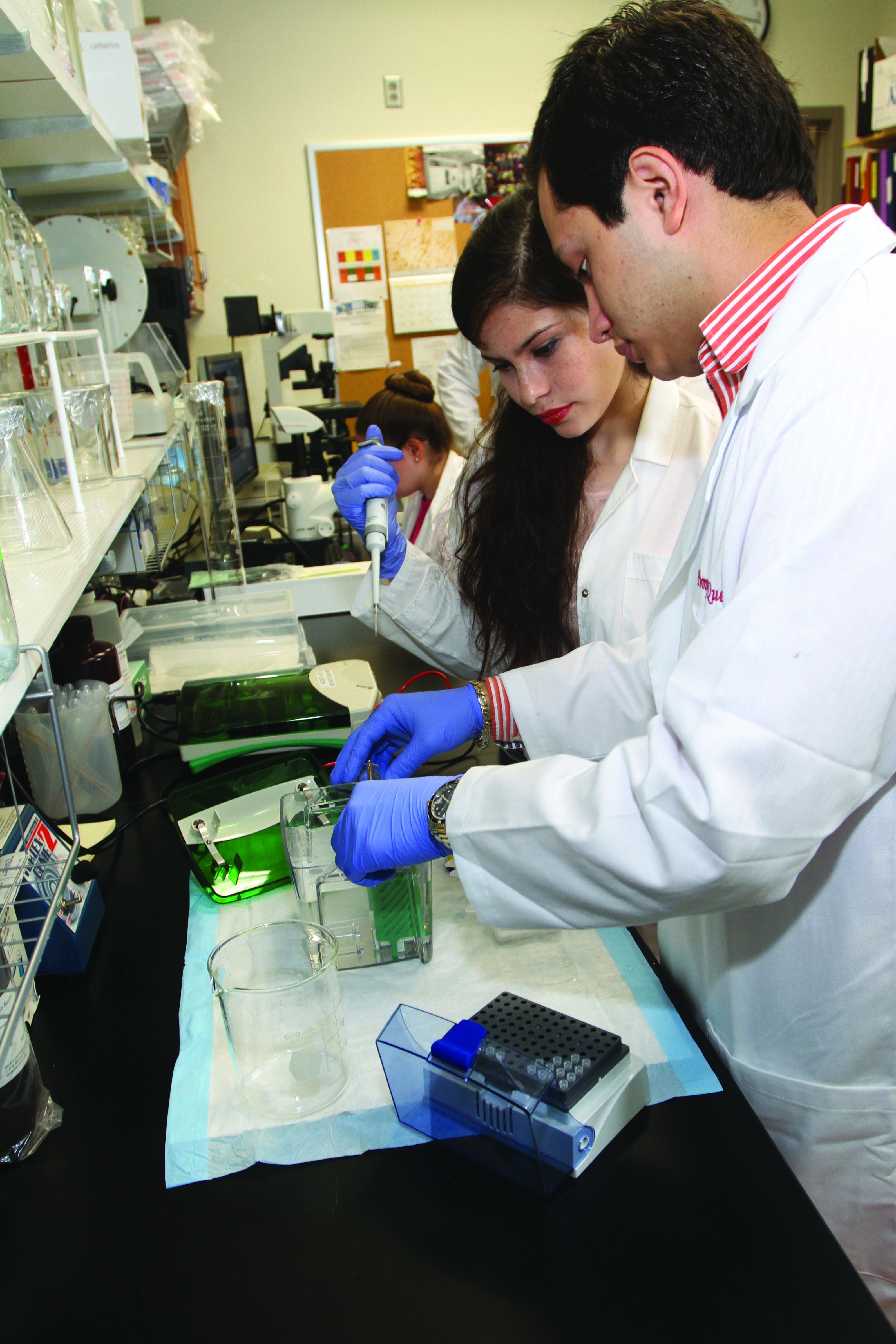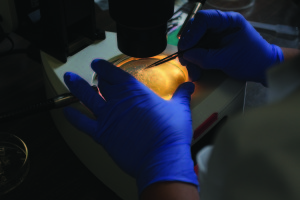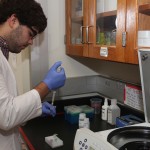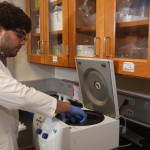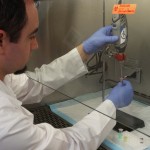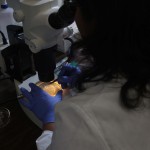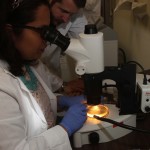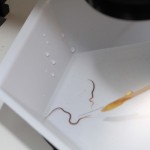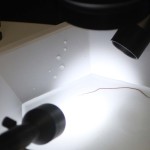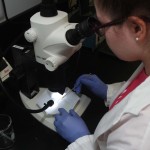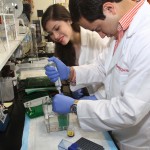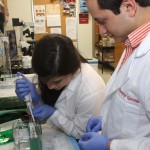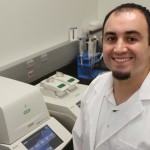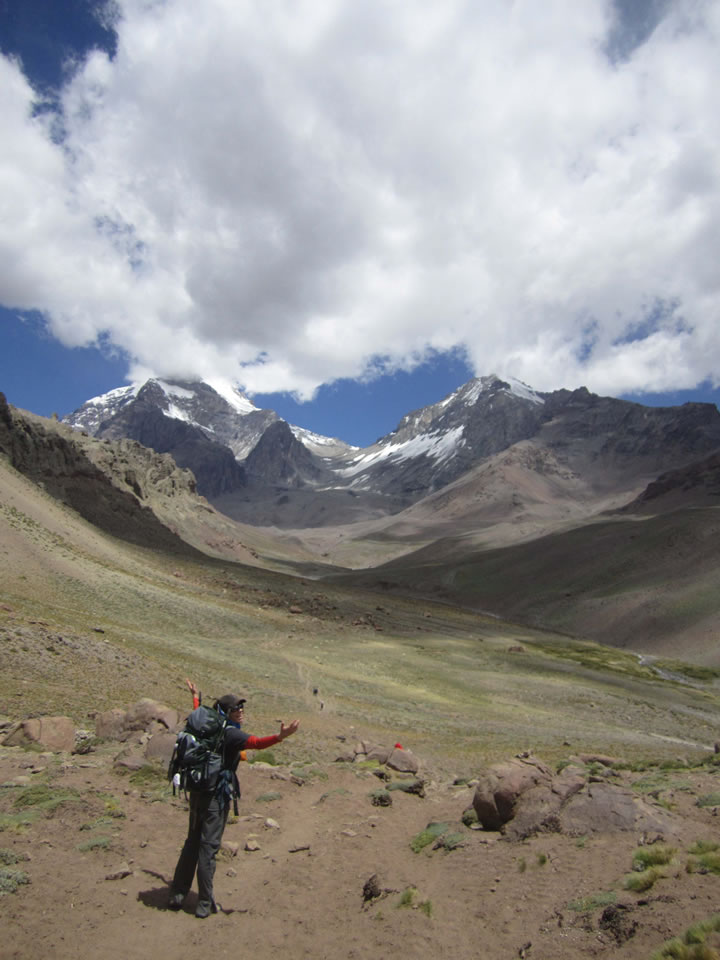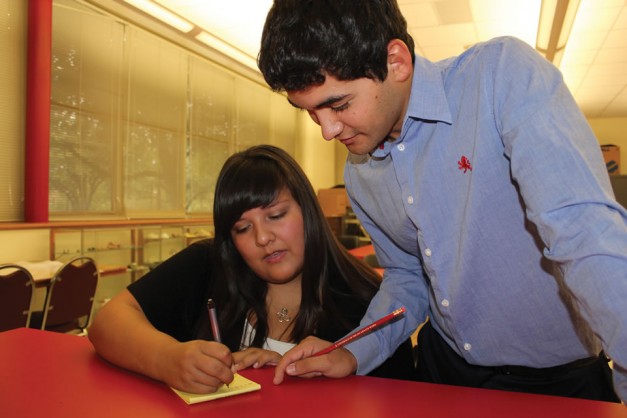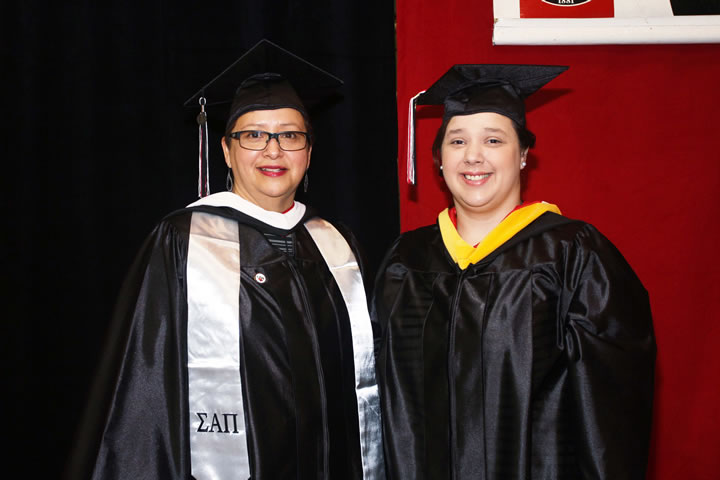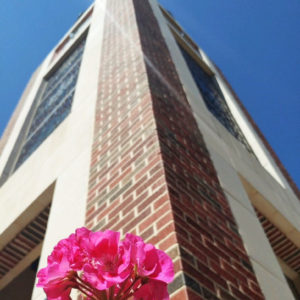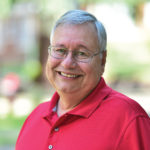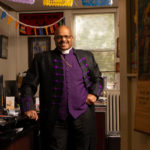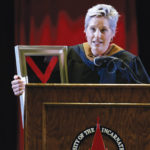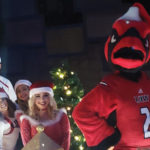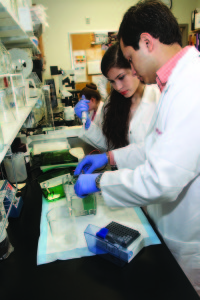
Student researchers Joanna Ortega and Pompeyo Quesada prepare to run a protein gel in order to evaluate protein levels during regeneration.
By Ashley Festa
What began as a love for catching bugs in the great outdoors turned into a career path that has the potential to revolutionize medical science.
Dr. Robert Miranda ’04 BS ’06 MS admits he never wanted to be a medical doctor. But after earning his Ph.D. in biology and now working as the University of the Incarnate Word’s (UIW) first postdoctoral fellow, his research may provide clues toward great advances in human health.
He’s studying the Lumbriculus variegatus, sometimes known as the California blackworm, an aquatic invertebrate with the ability to regenerate a lost head, tail or midsection from only a few remaining segments. The research project is funded through a three-year, $617,000 grant Dr. Veronica Acosta, assistant professor of biology, earned from the U.S. Department of Defense, which hopes to one day change the prognosis for millions of wounded veterans.
“The overall goal is to understand how this worm has this ability to regenerate itself,” Miranda said. “Most animals have the ability to regenerate to some extent. Humans regenerate tissue, but it’s usually scar tissue, so it’s not useful.”
When she received the grant, Acosta knew she would need help with the research. Though the stipulations didn’t require a post-doctoral assistant, Acosta wanted someone who could “be a good mentor for undergrads and who had good research skills to get the work done that the U.S. government expected us to get done.” After reviewing several strong applicants, she hired Miranda as UIW’s Postdoctoral Fellow in Cell and Molecular Biology.
Miranda and Acosta, along with three teams of student researchers, have set out to investigate the worm’s regenerative ability and, hopefully, harness it to advance human medical procedures. Though other scientists have researched regenerative abilities, this project is rare because the model uses a species with a more complex central nervous system.
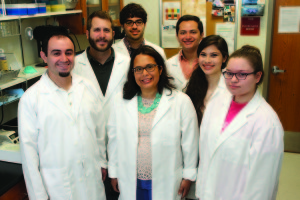
(Pictured clockwise) Alumnus Dr. Robert Miranda, postdoctoral fellow; student researchers Travis Parker, Javier Arjona-Soberón, Pompeyo Quesada, Joanna Ortega, and Janaye Dews; and Dr. Veronica Acosta (center), assistant professor of biology; share a photo in the team’s research lab.
“The military is taking a big interest because they want to use it for veterans who suffered some traumatic injury,” Miranda said. “That’s a research goal: to help regrow limbs or restore function.”
Acosta, of course, has the same research objectives, but she also set other goals for her collaboration with Miranda. She views the post-doctoral fellowship as an opportunity to mentor a young professor on what it’s like to work at a small undergraduate institution.
“We’re expected to be good teachers and good researchers,” Acosta said. “I wanted to help someone transition and balance teaching, research and service.”
Being a former postdoctoral fellow herself, Acosta values the opportunity the experience can provide. “The idea is to mentor someone in the life of a professor so you can be productive and also enjoy what you’re doing.”
Not only does Miranda get to work alongside UIW faculty, he also takes on a mentorship role himself with the undergraduates who assist with the research.
“My favorite part is working with the students in the classroom and also working in the lab, teaching them to be good scientists,” he said. “It’s wonderful to see their growth and enthusiasm. I still get to dabble around the lab, but I get to help these students the most.”
Miranda started the position in August, but already he’s been successful at rousing students’ excitement.
“Dr. Miranda is an outstanding researcher, professor and mentor. The quality of work that he performs has inspired me to perform at a higher level,” said Pompeyo Quesada, a senior who will graduate in December. “The fact that he was once in my situation here at UIW allows him to better reach the students, since we are able to directly connect with him. His dedication to his work, to his students, and to the field of science inspires me to reach excellence.”
With plans to become an orthopedic surgeon specializing in sports medicine, Quesada foresees that this research may transform his future career. “Maybe one day I can help patients recover from a spinal cord injury,” he said, acknowledging that current medicine offers few options to such patients.
When his fellowship is complete in July 2016, Miranda plans to pursue his own research projects, possibly in the realm of environmental preservation. He’s open to allowing his research take a new direction, but hasn’t ruled out remaining in the field of human health.
He will also consider teaching and credits Acosta for preparing him for the classroom, fulfilling one of her personal goals for the project: “the improvement of STEM opportunities for underrepresented minorities so we can mentor these students to survive in academia,” she said. “Whether they become professors or medical doctors, they’re being productive members to this field of biology.”
“She has been a great mentor,” Miranda said. “She’s trained me to have my own lab and my own students at a small institution like UIW. I’ve come full circle.”
- Current student Javier Arjona Soberón is preparing an RNA sample to load into the centrifuge for purification of the sample.
- Soberón loads an RNA sample into the centrifuge.
- Miranda uses the tissue homogenizer to lyse cells and isolate RNA from worm tissue.
- Acosta conducts a California blackworm dissection under a microscope.
- Acosta conducts a California blackworm dissection under a microscope.
- A California blackworm specimen in the lab.
- A California blackworm under a lab microscope.
- Former student and recent SP14 graduate, Janaye Dews, is viewing a worm under the dissecting scope to test different behavior responses.
- Ortega and Quesada prepare to run a protein gel in order to evaluate protein levels during regeneration.
- Ortega and Quesada prepare to run a protein gel in order to evaluate protein levels during regeneration.
- Miranda poses in the team’s lab in the AT&T Science Center.
